HISTORY AND EVOLUTION OF THE MINISTRY OF DEFENCE
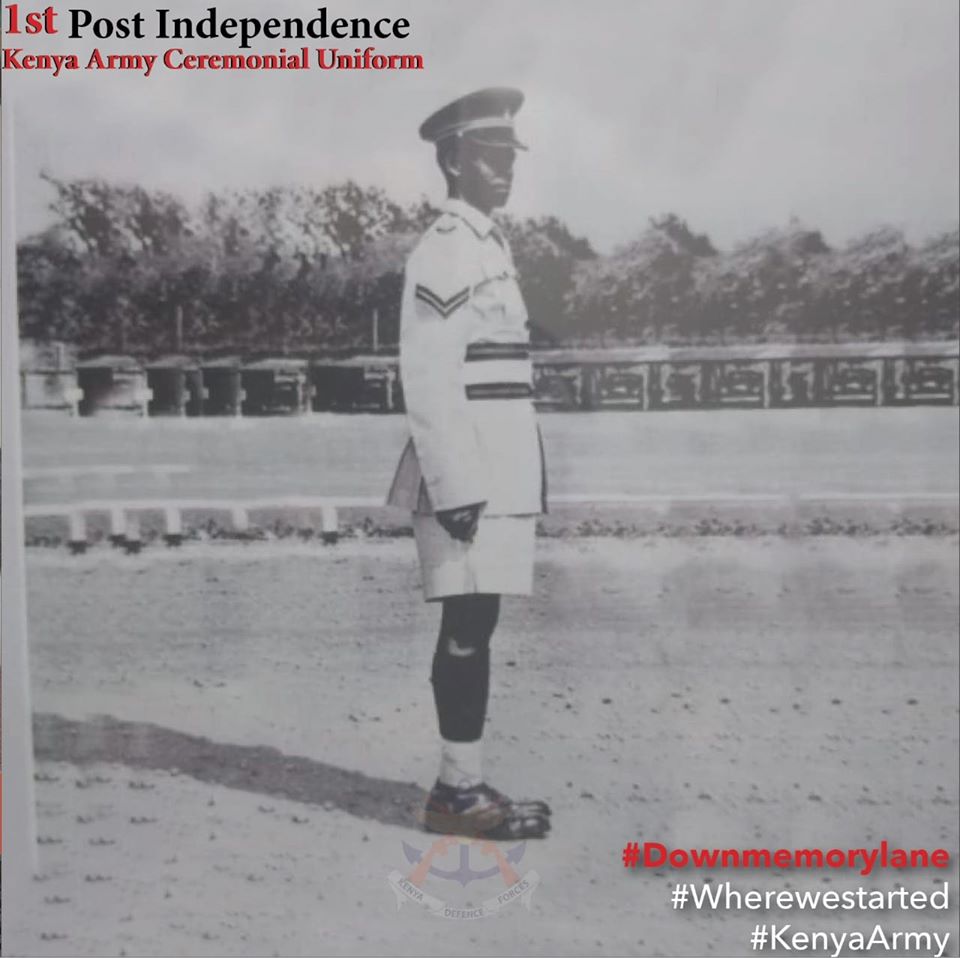
At independence, the Ministry of Defence was referred to as the Ministry of Internal Security and Defence. The Ministry of Internal Security and Defence encompassed the military, police and prison. During this period, there were only 21 civilians spread over the Kenya Army, the Kenya Air Force, the Kenya Navy, the Kenya Police and Prisons.
After independence in 1963, an Act of Parliament (KMF Act-Cap 198), created the Kenya Military Forces and the following year in 1964 Prisons and Police were transferred to the Ministry of Home Affairs. In 1966, the Police Department was further transferred from the Home Affairs docket to the Office of the President.
In 1968 an Act of Parliament repealed Chapter 198 which had created the Kenya Military Forces and replaced it with Chapter 199 of the Laws of Kenya creating the Kenya Armed Forces. Defence remained as the Ministry of Defence until 1980.
The Ministry has changed names since independence through Executive Orders of the President that spells out names of Ministry’s. It has been referred to as:
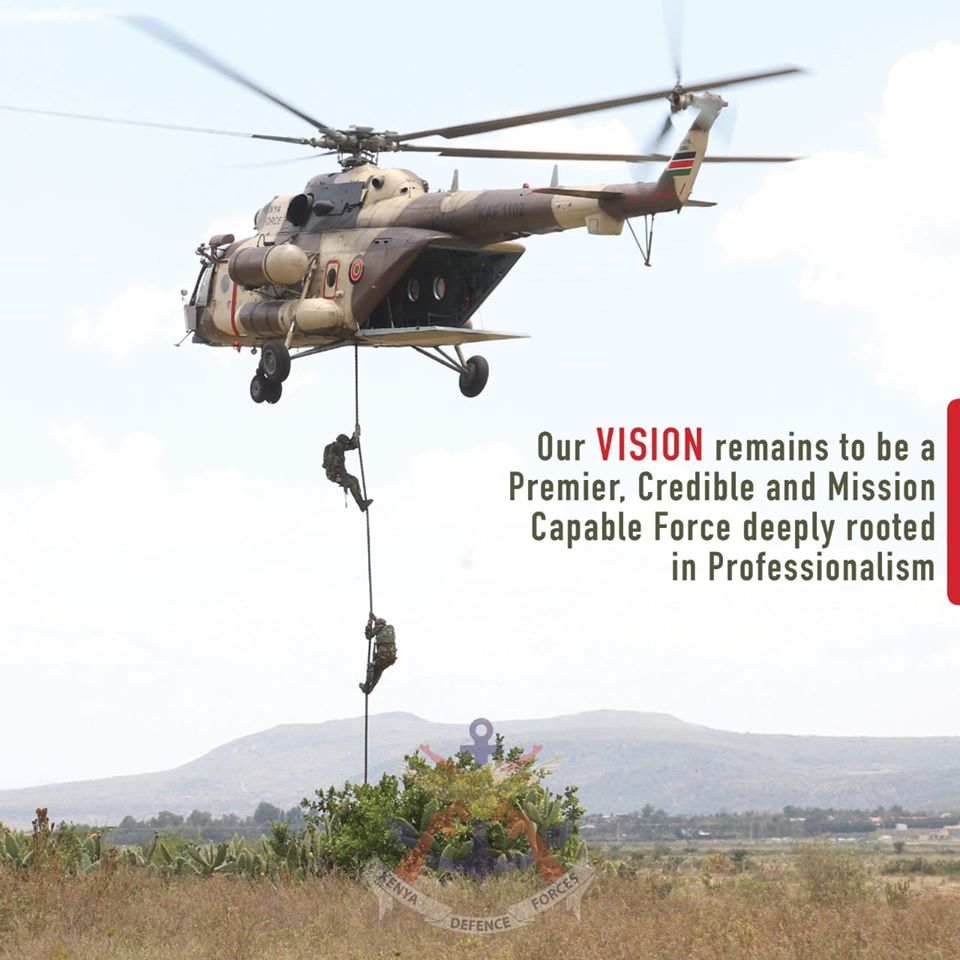
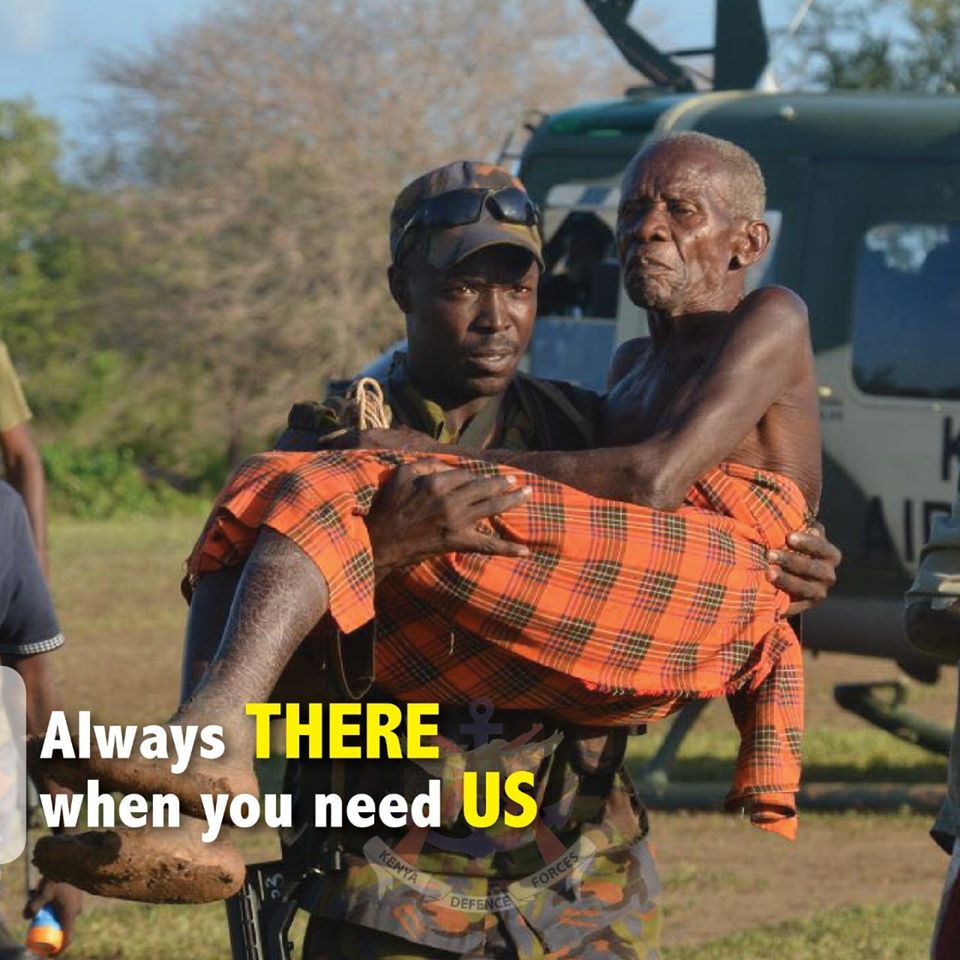
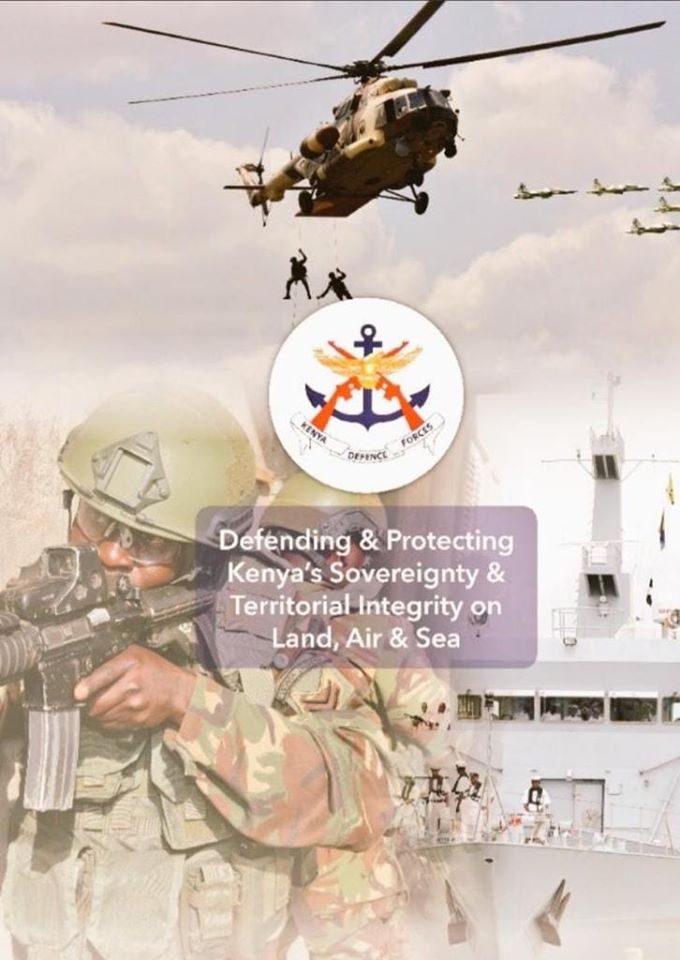
ABOUT MOD
The Ministry is headed by the Cabinet Secretary who is responsible to the President and Commander – in – Chief and Parliament on matters of policy. The Cabinet Secretary is appointed by the President and chairs the Defence Council which is responsible for the overall control and direction of the Kenya Defence Forces.
The promulgation of the new Constitution 2010 created the Kenya Defence Forces (KDF) to be headed by the Chief of the Defence Forces (CDF). The Chief of the Defence Forces (CDF) is the professional head of the three Kenya Defence Forces Services and the Principal Military Advisor to the Commander – in – Chief.
The CDF is the principal advisor to the President and Cabinet Secretary on any military, operational and administrative matters within the competence of the Chief of the Defence Forces. Subject to the general direction of the Defence Council chaired by the Cabinet Secretary, the CDF is responsible for the control, direction and general superintendence of the Defence Forces.
The Principal Secretary is the accounting and authorized officer on financial and administration matters of the Ministry of Defence. He/she is also personally accountable to Parliament for the expenditures of all public moneys provided for the Ministry of Defence.
The Executive Order No. 2 of May 2013 (Revised May 2020) created the Ministry of Defence. The work of the Ministry of Defence is informed by the Constitution of the Republic. The Ministry is obliged to facilitate and support the Kenya Defence Forces (KDF) in the discharge of their mandate under Article 241 (3) (a), (b) & (c) of the Constitution, in order to ensure that KDF, which is the Ministry’s technical arm achieves its vision to be ‘a premier, credible and mission capable force deeply rooted in professionalism’.
Civilians who work in the Ministry play a complementary role to enable the KDF concentrate on their core functions. Over the years, the civilian personnel strength rose from 200 people in 1961 to over 2000 human resource in 2020. They provide different services in support of the Defence Forces ranging from Policy, Administration, Financial Management, Public Communications to Human Resource Management, Medical and Technical Services.
ORGANIZATION OF MOD HQS

SOME INTERESTING FACTS
Ministry of Defence Cabinet Ministers/Secretaries History

Magana Njoroge Mungai, M.D. EGH (January 7, 1926 – August 16, 2014) was a Kenyan Cabinet Minister, Member of Parliament, doctor, businessman, farmer, politician, nationalist and one of the founding fathers[1] of the Republic of Kenya.
He was the minister for Internal Security and Defence during the year
Hon. Dr. Njoroge Mungai
In 1964, he presented a Bill for the House of Representatives to ratify the provision to establish the African Development Bank. After independence, Gichuru was also at the centre of talks between Kenyan and British officials on the take-over of one million acres of mixed farmland owned by Europeans to resettle landless Africans. Towards the end of the Kenyatta rule, Gichuru was the Minister for Defence. When Moi took over from Kenyatta, Gichuru retained the position.
But the minister developed health problems from the early 1970s and he even went for medical treatment abroad. In March, 1982, Njonjo castigated Gichuru’s opponents in his Limuru constituency for alleging that he was finished politically. Gichuru died in August 1982. Those who sent condolence messages had good things to say about Gichuru. Waiyaki, a Cabinet colleague, said: “Few men in the country are as honourable, brave and steadfast as Gichuru.”
Born in 1914 to pioneer Christians Samuel Gitau and Mariam Nyaguthii, James Samuel Gichuru was the first of nine children. His 90-year-old sister Hannah Wanjiku says that at a young age, Gichuru led a life different from boys his age, mostly because his parents were religious and put education ahead of traditional cultural activities.
“While tradition dictated that boys look after livestock, my parents, who were among the very first Christians in Thogoto, Kikuyu, insisted that Gichuru and my brothers and sisters attend school instead. Gichuru was a very obedient young man,” Wanjiku recalls.
Because of the relationship between his parents and missionaries, the man, who went on to become the first president of the Kenya African National Union (Kanu), went to school at the Church of Scotland Mission School, Kikuyu at five. He completed primary education and went to Alliance High School and completed secondary education at 16.
Gichuru proceeded for Makerere College for a diploma in teaching. He returned to teach at Alliance, whose teaching staff was then exclusively white, between 1935 and 1940. He was then the headmaster of Church of Scotland School at Dagoretti. The other pioneer African teacher at Alliance was J.D. Otiende, who became a minister in the first independent Cabinet.
Hon. Amb. Julius L. Ole Sunkuli, EGH, EBS
 Julius Lekakeny Sunkuli is a Kenyan politician. He previously represented the Kilgoris Constituency in the National Assembly of Kenya in between 1997-2002. He also served as Minister in the Kenyan Government and was recently Kenya’s envoy to China,[1] prior to resigning to the Narok County senator’s seat in the 2013 general election[2]
Julius Lekakeny Sunkuli is a Kenyan politician. He previously represented the Kilgoris Constituency in the National Assembly of Kenya in between 1997-2002. He also served as Minister in the Kenyan Government and was recently Kenya’s envoy to China,[1] prior to resigning to the Narok County senator’s seat in the 2013 general election[2]
Hon Christopher Ndarathi Murungaru
 Minister of State for Provincial Administration & National Security
Minister of State for Provincial Administration & National Security
Hon. James Njenga Karume
 Kenyan Minister of Defense, The Hon. Njenga Karume led a contingent of distinguished visitors including senior officers from Kenya, Tanzania and Uganda and The United States of America at Natural Fire Opening Ceremonies.
Kenyan Minister of Defense, The Hon. Njenga Karume led a contingent of distinguished visitors including senior officers from Kenya, Tanzania and Uganda and The United States of America at Natural Fire Opening Ceremonies.
Hon. Mohamed Yusuf Haji
 Mohamed Yusuf Haji is a Kenyan politician.
Mohamed Yusuf Haji is a Kenyan politician.
He was the Minister of Defence of Kenya from 2008 to 2013, and briefly served as its acting Minister of Internal Security and Provincial Affairs in 2012.
He has served in the Senate of Kenya since 2013.
Ambassador Raychelle Omamo SC, EGH
 Ambassador Raychelle Awuor Omamo is the current Cabinet Secretary for Foreign Affairs of the Republic of Kenya. Prior to her appointment she served as Cabinet Secretary of Defence and Chairperson of the Defence Council between April, 2013 and January, 2020.
Ambassador Raychelle Awuor Omamo is the current Cabinet Secretary for Foreign Affairs of the Republic of Kenya. Prior to her appointment she served as Cabinet Secretary of Defence and Chairperson of the Defence Council between April, 2013 and January, 2020.
Ambassador Omamo is a lawyer by profession having received her training at the University of Kent at Canterbury in the United Kingdom and at the Kenya School of Law. She is a Senior Counsel and as a practitioner was elected Chairperson of the Law Society of Kenya and the Vice President of the East Africa Law Society. She was also the recipient of the ICJ (K) Jurist of Year award in 2002.
Ambassador Omamo has served on a number of Kenya Government taskforces and commissions related to the advancement of the rule of law such as the Task Force on Landlord and Tenant Law; the Task Force on the Establishment of the Truth and Reconciliation Commission; and as Counsel to the Ndung’u Commission.
In her free time, Ambassador Omamo is an enthusiastic birdwatcher and also enjoys water colour painting and crosswords.
AMB. DR. MONICA JUMA, (Oxon), EGH

Dr. Monica Juma was the Cabinet Secretary in the Ministry of Energy of the Republic of Kenya.
Dr.Juma was in charge of the overall defence policy formulation, guidance and implementation. She chaired the Defence Council which is responsible for overall control, policy and direction of the Kenya Defence Forces. She was a member of the National Security Council and advices the President and the National Assembly on any matter relating to the Defence Forces.
She was the Chair of the Contact Group on Piracy off the Coast of Somalia (CGPCS), 2020-2021, an international governance mechanism established in New York on January 14, 2009 to facilitate the discussion and coordination of actions among states and organizations to suppress Somali piracy.
Dr. Juma was appointed the Cabinet Secretary for Defence in January 2020 and moved from the Ministry of Foreign affairs, where she had served as Cabinet Secretary between 2018-2020. She is currently the Cabinet secretary in the Ministry of Energy.
During her stint at the MFA, Dr. Juma led Kenya’s diplomatic corps in projecting, promoting, protecting and pursuing the national interests of the Republic of Kenya across the world.
Before serving at the helm of Kenya’s diplomacy, Dr. Juma was the Principal Secretary in the Ministry of Interior and Coordination of National Government (2014-2015).
In the Interior docket, she drove transformation and reforms in the national security sector. She also initiated work that led to the development of Kenya’s strategy on Counter-terrorism, violent extremism and the creation of the multi-agency approach in tackling security challenges in general, and terrorism in particular. Collectively, these measures significantly reduced Kenya’s vulnerability to terrorist attacks and restored security across the country.
Prior to being at the Ministry of Interior and Coordination of National Government, Dr Juma was the Principal Secretary in the Ministry of Defence (2013-2014) where she was instrumental in strengthening the business process systems within the Ministry, clarifying the defence strategic orientation and bolstering the professional stature of the Kenya Defence Forces.
Before her appointment to the executive, Dr. Juma was Ambassador Extra-Ordinary and Plenipotentiary of Kenya to Ethiopia and Djibouti, and Permanent Representative of Kenya to the African Union, the Inter-Governmental Authority on Development (IGAD) and United Nations Commission for Africa (UNECA), between June 2010 and July 2013. Among the key efforts during this time was the negotiations for the re-hatting of the Kenya Defence Forces into the African Mission in Somalia (AMISOM).
HON. EUGENE LUDOVIC WAMALWA, EGH
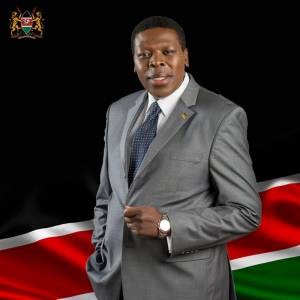 Eugene Ludovic Wamalwa was the Cabinet Secretary (CS) Ministry of Defence of the Republic of Kenya following his appointment by H.E the President Uhuru Kenyatta on 29th September, 2021 to 2022.
Eugene Ludovic Wamalwa was the Cabinet Secretary (CS) Ministry of Defence of the Republic of Kenya following his appointment by H.E the President Uhuru Kenyatta on 29th September, 2021 to 2022.
Before this appointment, Hon. Eugene Wamalwa was the CS for Devolution, Arid and Semi-Arid Lands a position he held from March 2018 to September 2021. Previously, he was the CS Ministry of Water and Irrigation from June 2015 to February 2018.
At the Defence, the CS is responsible for policy formulation and implementation. He also offers strategic direction that aims to support the Ministry to effectively operationalize its mandate by formulating, presenting and articulating Cabinet memoranda, sessional papers, and other policy issues emanating from the Ministry.
Between 2012 and 2013, he served as the Minister for Justice, National Cohesion and Constitutional Affairs where he immensely contributed to successful implementation of the Kenyan Constitution by championing and submitting various Bills including the Campaign Financing Bill 2012 which resulted in the Campaign Financing Act (No 42 of 2013) among others.
At National Cohesion and Constitutional Affairs, he also contributed to various positive reforms in different sectors including; Peaceful Elections, Policies Development, National Cohesion and Integrity and, Legal Education where he passed two critical Bills: Kenya School of Law Act (No 26 of 2012) and the Legal Education Act (No 27 of 2012).
In addition to this, he played a key role in judicial reforms by working closely with and supporting the judiciary on its transformative (Amendment) Act (No. 10A of 2012) which resulted in the increase of the number of Court of Appeal Judges to 30 and High Court Judges to 150 to increase access to justice and clear the case backlog.
At the birth of Devolution, Wamalwa served as the Member of Parliament, Saboti Constituency from 2008 to 2013.
In other Capacities CS Eugene Wamalwa is a profound advocate of the High Court of Kenya, serves as a Commissioner for Oaths, a Notary Public as well as a Certified Public Secretary.
Ministry of Defence Chief of the Defence Forces (CDF) History

General Bernard Penfold (1966-1969)
Major-General Robert Bernard Penfold CB LVO was a British Army officer who commanded South East District.
Major General Bernard Penfold, who has died aged 98, had an adventurous career in the Army and then played a leading part in an ambitious project to provide Hong Kong with a new racecourse from reclaimed land.
On retiring from the Army in 1972, Penfold became the first general manager of the Royal Hong Kong Jockey Club (RHKJC). Racing played an important role in the social life of the metropolis but the track at Happy Valley was cramped and lacked the facilities essential for a top-rate international venue.
In 1974, under Penfold’s leadership, work began to construct a course on a purpose-built site at Sha Tin in the New Territories. Millions of tons of soil were moved to 260 acres of land reclaimed from the Shing Mun River Channel.
That it was finished on time in 1978 was largely due to his vision and drive. It has a capacity of 80,000 and is home to some of the world’s top thoroughbreds. Penfold Park, in the centre of the course, was laid out to his design and was named in his honour.
Robert Bernard Penfold was born on December 19 1916 at St Neots, Cambridgeshire, and was educated at Wellington College and Sandhurst. Always known as Bernard, he was commissioned into the 1st Battalion The Leicestershire Regiment in 1936 before transferring to the Indian Army.
He saw service on the North West Frontier with the 11th Sikh Regiment and, after the outbreak of war, transferred to the Central Mediterranean Forces. He commanded a company of the 2nd Battalion in the western desert before serving as a staff officer with Persia & Iraq Force.
In 1944, he returned to 2/11 Sikhs in Greece. He then instructed at Staff College, Quetta, and, after partition, transferred to the British Army. A posting as deputy director of training and personnel at the War Office was followed by a return to regimental duties as a battery commander with 23rd Field Regiment Royal Artillery.
In 1957, Penfold moved to the Military Mission at Washington DC. For his service as GSO1, he was appointed LVO at the end of his tour. Command of 6th Battalion King’s African Rifles in Tanganyika followed in 1959. He took great trouble to understand the history of the people of Tanganyika and, in particular, the tensions that could arise if the tribal components of the battalion became unbalanced. To the Askari, Penfold was Bwana Kali (Colonel Fierce) .
In 1964, he was promoted to brigadier and posted to Aden as security adviser during the Radfan campaign. Two years later, President Jomo Kenyatta appointed him chief of staff of the Kenya Defence Forces. He was appointed CB in 1969.
Penfold went on to be GOC South East District before retiring from the Army in 1972 in the rank of major-general. The following year, at the outset of his stewardship at the RHKJC, racing at night began at Happy Valley and new betting products were introduced to put an end to illegal bookmaking. The club, which was granted a royal charter in 1959, reverted to its original name after the transfer of sovereignty in 1997.
In 1977, Ocean Park, a leisure facility, opened to the public. It was Penfold’s other major project . He returned from Hong Kong to England in 1980 . He settled in Hampshire, where he was a passionate golfer and gardener.
Robert Penfold married, in 1940, Ursula Gray, the daughter of an officer in the Punjab Regiment. She predeceased him and he is survived by their two daughters.
Major General Bernard Penfold, born December 19 1916, died April 22 2015
 Maj-Gen Joseph Ndolo
Maj-Gen Joseph Ndolo
Maj-Gen Joseph Ndolo, the first African to head the military, lasted only two years as Chief of General Staff. His reign was abruptly brought to an end after the 1971 coup attempt. He died in 1984.
Born in 1919, Maj-Gen Ndolo quickly rose through the ranks to become the first Kenyan head of the armed forces.
He had been recruited into the King’s African Rifles, and was a high-ranking officer within the newly established Kenya Army at independence.
When Ndolo was appointed Army Commander in 1966, the newly created position of Chief of Defence Staff was held by Major-General Penfold, a British officer.
Ndolo’s rise to the top was linked to the 1964 Lanet Mutiny. The mutineers had demanded, among other things, the Africanisation of the top echelons of the military.
Gen Jackson Mulinge (1971-1986)

Gen Jackson Mulinge served as the military chief for 15 years. The general, whose military education was entirely British, was the first Kenyan to receive the Queen’s commission in 1961.
Gen Mulinge was the first to hold the post of Chief of General Staff (today called Chief of Defence Forces) in 1978 and was the first to become a four-star general in 1980.
As Chief of General Staff, he helped quash the 1982 coup attempt to overthrow President Daniel arap Moi.
On leaving the military, he got elected Kathiani MP and later joined the Cabinet, variously as Land and Health minister.
He died in 2014 aged 91.
General Mohamud Haji Mohamed Barrow
 As deputy army commander, Mahmoud Mohammed led the operation that crushed the 1982 coup attempt, changing the course of Kenya’s history. Recapturing Voice of Kenya, the national broadcaster, from rebel soldiers was a major step in suffocating the coup plotters.
As deputy army commander, Mahmoud Mohammed led the operation that crushed the 1982 coup attempt, changing the course of Kenya’s history. Recapturing Voice of Kenya, the national broadcaster, from rebel soldiers was a major step in suffocating the coup plotters.
A soldier with modest education, he started his career as an infantryman private, the army’s lowest rank, and rose through the ranks to head the military. No other man has achieved such a feat in the history of Kenya’s military. His academic credentials are the lowest compared to other generals, but his contribution as the head of the military was significant.
Today, he runs businesses in Garissa and Nairobi.
Gen (Rtd) Daudi Tonje
 Gen (Rtd) Daudi Tonje, one of the celebrated KDF officers, carried out a revolution in the military. During his tenure, there was the highest number of reforms that included the disbandment of the Women Service Corps, leading to the inclusion of women in the mainstream military ranks, establishment of the Defence Staff College and the Defence Forces Medical Insurance Scheme. General Tonje also introduced term limits for military officers.
Gen (Rtd) Daudi Tonje, one of the celebrated KDF officers, carried out a revolution in the military. During his tenure, there was the highest number of reforms that included the disbandment of the Women Service Corps, leading to the inclusion of women in the mainstream military ranks, establishment of the Defence Staff College and the Defence Forces Medical Insurance Scheme. General Tonje also introduced term limits for military officers.
It is Gen Tonje who ended the pay parades in which soldiers had to line up when receiving salaries. Instead, he introduced the payment of salaries through bank accounts.
In 1962, he was enlisted to the army and trained as a cadet at Hifford Barracks, Lanet, then as the first direct-entry African cadet.
After his training, he was posted to the 11th KAR battalion, which was disbanded in 1964 after some soldiers staged a mutiny over poor pay for African soldiers.
Gen Tonje is a goat farmer at his countryside home in Baringo County.
Gen (Rtd) Joseph Kibwana
 Gen (Rtd) Joseph Kibwana was in the first batch of 10 African officers and servicemen recruited to the Navy in 1964. The officers were sent to the Britannia Royal Naval College in Dartmouth, UK, for studies.
Gen (Rtd) Joseph Kibwana was in the first batch of 10 African officers and servicemen recruited to the Navy in 1964. The officers were sent to the Britannia Royal Naval College in Dartmouth, UK, for studies.
In 2000, he became the first Navy officer to occupy the office of the Chief of General Staff.
He oversaw the smooth transition of power from President Moi’s Kanu regime to triumphant opposition Narc candidate Mwai Kibaki after the 2002 General Election.
Gen (Rtd) Kibwana is the Kenya Ports Authority board chairman.
Gen (Rtd) Jeremiah Kianga
 General Jeremiah Mutinda Kianga ‘EGH’ ‘CBS’ ‘ndc’ (K) ‘cgsc'(USA), was born on 26 April 1950 in Makueni District. He went to Machakos Secondary School which he completed in 1970. He joined the military in April 1971 and after two years cadet training at the Royal Military Academy in Sandhurst, he was commissioned and posted to the 5th Kenya Rifles as a Platoon Commander in 1973 where he did regimental duty up to 1975.
General Jeremiah Mutinda Kianga ‘EGH’ ‘CBS’ ‘ndc’ (K) ‘cgsc'(USA), was born on 26 April 1950 in Makueni District. He went to Machakos Secondary School which he completed in 1970. He joined the military in April 1971 and after two years cadet training at the Royal Military Academy in Sandhurst, he was commissioned and posted to the 5th Kenya Rifles as a Platoon Commander in 1973 where he did regimental duty up to 1975.
General Kianga has been trained in Kenya, the United Kingdom (UK), India and the United States of America, where he obtained a Masters degree in Military Arts and Science from Kansas University.
He served on the Directing Staff at the Army Staff College, UK and Defence Staff College Kenya. He also served as Defence Advisor in Uganda and Chief of Military Intelligence at Defence headquarters. In December 1999, as a Major General, he was appointed General Officer Commanding Eastern Command then Deputy Army Commander and thereafter served as Assistant Chief of General Staff-in-charge of Personnel and Logistics at Defence Heaquarters.
On March 2003 he was promoted to the rank of Lieutenant General and appointed Commander, Kenya Army from where he has been promoted to General and appointed CGS, taking over from General (Retired) J R E Kibwana.
Gen (Rtd) Jeremiah Kianga, who was considered a strict disciplinarian and a general introduced the bachelor’s degree in military science for all officers.
The degree, which started in collaboration with Egerton University for all military officers, was part of the Defence Forces Continuous Education Programme. It was later taken over by Kenyatta University.
General Jeremiah Mutinda Kianga retired on August 12th 2011 after over 40 years of soldiering.
He is the chairman of Kenya Railways Corporation.
Gen Julius Waweru Karangi (2011-to 2015)
 Gen (Rtd) Julius Waweru Karangi will be remembered as the Chief of Defence Forces who led Kenyan troops to war, the first time in the country’s history.
Gen (Rtd) Julius Waweru Karangi will be remembered as the Chief of Defence Forces who led Kenyan troops to war, the first time in the country’s history.
Under his command, the KDF was deployed in October 2011 to fight Al-Shabaab militants in Somalia who had been making cross-border attacks. “Gen Karangi is probably the most extraordinary man I have ever met. A general who led Kenya successfully into battle,” The then Defence Cabinet Secretary Raychelle Omamo praised the retired General during his handing-over ceremony.
He joined Kenya Air Force in 1973 and after Cadet training in UK, he was commissioned as an officer in 1974.
After qualifying as a Flight Navigator in October 1975 in the Royal Air Force in England, he was posted to Flying Wing Kenya Air Force where he worked as a Navigator.
In 1995 he became Commander of Kenya Air Force Base, Moi Air Base and then in 1997, he was appointed Commander of the Kenya Air Force Logistics Command.
In 2000to 2003 he was promoted to the position of Commandant Defence Staff College, Karen rank of Major General, after which he was appointed before he was made Commander of the Kenya Air-force between 2003-2005
In August 2005, Karangi was promoted to the rank of Lieutenant General and Vice Chief of Defence Forces, Defence Headquarters.
And then On 13 July 2011 he was promoted to the rank of General and appointed the position of Chief of Defence Forces.
Gen (Rtd) Karangi is the chairman of the National Social Security Fund board of trustees
General (RTD) Samson Mwathethe
 He was born in the coastal town of Malindi, Kilifi County, in 1958 . He attended Shimo la Tewa Primary School, in Malindi and Sacret Heart High School, in Mombasa.
He was born in the coastal town of Malindi, Kilifi County, in 1958 . He attended Shimo la Tewa Primary School, in Malindi and Sacret Heart High School, in Mombasa.
In 1978, he joined the Kenya Navy and was sent to the Britannia Royal Naval College in Dartmouth, Devon, United Kingdom (UK). After graduation, he was commissioned as a Seaman, in 1980.
Over the years, Samson Mwathethe has undertaken courses at national and international institutions, including (a) an International Sub-Lieutenants Course in the UK (b) an International Principal Warfare Ordinance Course (IPWO), in the UK (c) a Missiles Study Course in Italy (d) a course at Royal Naval College, Greenwich (e) a Defence Resource Management Course at the Naval Postgraduate School, in Monterey, California, United States and (f) a course at the National Defence College, Kenya
In 1991, he served as a United Nations military observer in Kuwait/Iraq and in Yugoslavia, the following year. He is a decorated military officer with the Distinguished Conduct Order (DCO) and Moran of the Burning Spear (MBS) medals
General (Rtd) Robert Kariuki Kibochi EGH CBS ‘ndc’ (K) ‘psc’ (UK)

General Robert Kariuki Kibochi is the Out going Chief of the Kenya Defence Forces following retirement on the 28/04/2023. He was appointed Chief of the Kenya Defence Forces on the 4 May 2020. Gen Robert Kibochi was enlisted into the Kenya Defence Forces on 18 May 1979 and underwent Officer Cadets Training until 30 March 1980 and commissioned in the rank of Second Lieutenant and posted to Signals Battalion.
He has held various command and staff appointments including Vice Chief of the Defence Forces, Commander of the Kenya Army, Assistant Chief of Defence Forces in charge of Operations, Plans, Doctrine and Training at Defence Headquarters (DHQ), Chief of Strategic Plans and Policy, Director International Peace Support Training Centre, Col Operations Requirements (CIS) and Commander Corps of Signals. Other appointments held include Chief of Staff at the Eastern Africa Standby Force, SO1 Records at Headquarter Kenya Army (HQ KA), SO1 Comms HQ KA, SO1 Mobilization DHQ, SO1 Comms CIS DHQ and SOII Operations and Training at the HQ of the Corps of Signals.
Gen Kibochi has a PhD degree in Peace and Conflict Management, Masters Degree of Arts in International Studies, Masters Degree in Computer Based Information Systems, Bachelors of Technology in Communication and Electronics Engineering. His other professional training include; National Security Studies at the National Defence College (Kenya), Army Command and Staff Course (UK), Overseas Telecoms Engineering Course (UK), Signal Officers Degree Telecommunications Engineering Course (India), Sub Unit Commanders Course, Platoon Commanders Course, Regimental Signal Officers Course among other training courses.
He served with the United Nations as Commander of Kenyan Contingent in the United Nations Mission in Sierra Leone (UNAMSIL) from 2000 – 2001; while his decorations include Elder of the Order of the Golden Heart (EGH) and Chief of the Order of the Burning Spear (CBS) among others.
Gen Robert Kariuki Kibochi was born in Nakuru on 15 August 1959. He is married to Tabitha and blessed with four daughters and a grandson.
